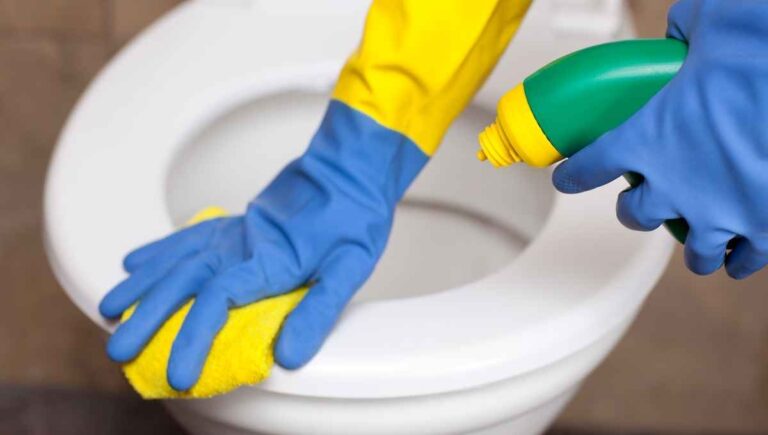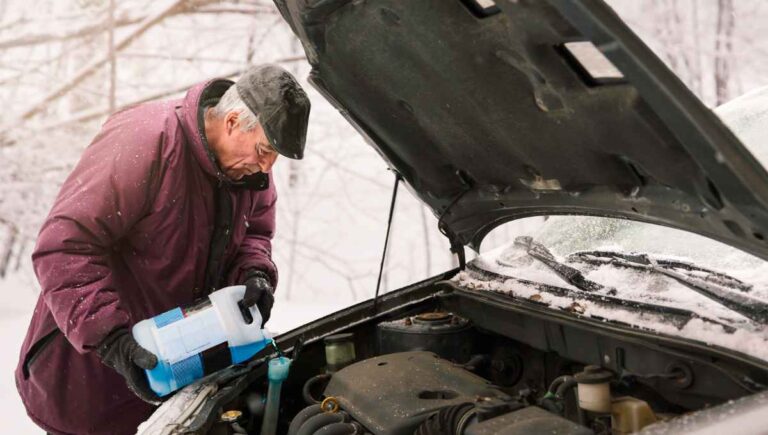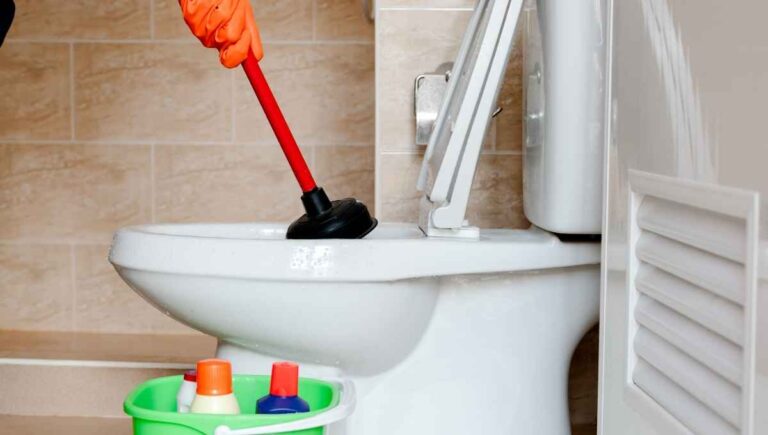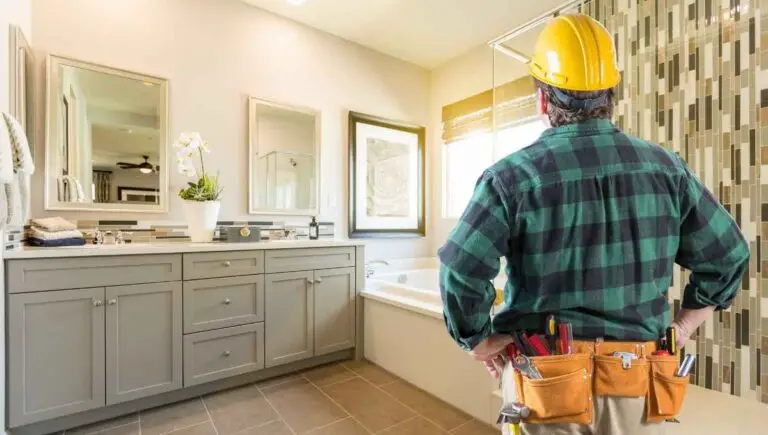Can a Fireplace Explode? (Do This to Prevent an Explosion)
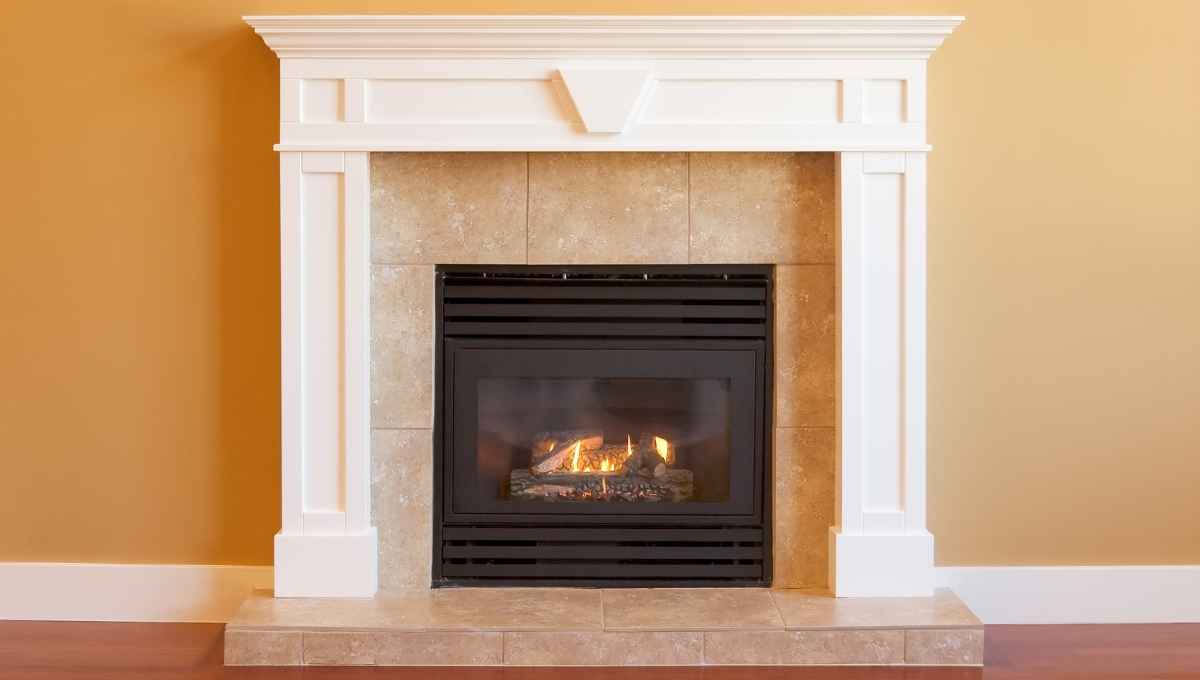
If you’re a fireplace novice, the idea of your fire spreading or causing an explosion is a big concern. You may have heard stories about gas stoves or fireplaces exploding with no warning. That’s pretty scary! So, is it possible for a fireplace to explode?
While it is possible for a gas-fueled fireplace to explode, it’s pretty rare. Typically, that kind of explosion would only happen because of a faulty pilot light or other user errors. Always make sure your pilot light is functioning correctly.
In this article, we will be discussing the difference between wood and gas-burning fireplaces. We’ll tell you which one is more likely to give you issues and tell you all the best ways to prevent an explosion from occurring in your home.
This post contains affiliate links. This means Household Blogger may earn a commission should you make a purchase using any of our links. Please refer to our full affiliate disclosure policy for full details.
Here’s a Quick Pro Tip!
Although it is rare for a gas fireplace to explode, it can happen if there is a build-up of carbon monoxide. One way to avoid this is to have carbon monoxide detectors installed throughout your home.
Here are some of our favorite carbon monoxide detectors from Amazon:
1. First Alert Carbon Monoxide Detector – Battery-powered and advanced technology.
2. Kidde Carbon Monoxide Detector – Battery backup with digital display.
3. First Alert Pack of Three – To ensure you’ve covered all areas!
Gas Fireplaces vs. Wood Fireplaces
We all know a gas fire is going to burn differently from a wood fire. We’ve gathered up some great comparisons so that no matter which method you use to heat your home, you can stay safe and warm.
Can a Wood Fireplace Explode?
While it is possible that steam can build up in a piece of wood that hasn’t dried out properly, it’s improbable that a wood-burning fireplace will actually explode. However, you may have a bit of wood that ‘pops’ emitting a spray of sparks.
What you should worry about, however, is a build-up of soot and creosote in your wood-burning fireplace chimney.
These compounds will build up over time if you do not have your chimney cleaned and can catch fire. Always make sure you’re following fireplace safety.
Can a Gas Fireplace Explode?
Though it is rare, if not properly monitored and maintained, it is possible for a gas fireplace to explode. Leaving the pilot light lit without starting the actual fireplace can lead to a buildup of gas, which may explode.
To prevent this, always make sure your pilot light is completely extinguished after use.
Make sure your pilot light and the fireplace itself are regularly cleaned and properly maintained to prevent accidental explosions from occurring.
Can a Gas Fireplace Explode When Starting?
If you have a faulty pilot light, or if the pilot light was left on, allowing gas to pool, it is possible for a gas fireplace to explode when you start it up. To keep this from happening, be sure to check your pilot light often for signs of damage.
Another concern of gas fireplaces is carbon monoxide buildup. If your pilot light is left on and your fireplace doesn’t have the proper ventilation, a toxic build-up of carbon monoxide can form.
Because carbon monoxide is colorless and odorless, you should have a carbon monoxide detector in every room of your house.
How Likely Is It That My Gas Fireplace Will Explode?
It’s pretty unlikely that your gas fireplace will explode, but it’s not an impossibility. A build-up of gas from your pilot light is possible. If that gas build-up catches a spark, you could be looking at a big explosion.
To keep yourself and your family safe while using your gas fireplace, be sure to schedule regular maintenance of your pilot light and fireplace.
Regular maintenance will minimize your chances of an accidental explosion.
Are Gas Fireplaces Safe?
Gas fireplaces are just as safe as other types of fireplaces, as long as you maintain them properly. Because it does not need wood and other firestarter materials to burn, some people consider them even safer than their wood-burning counterparts.
However, the fact that gas fireplaces are considered safe does not mean that you can ignore the maintenance of your fireplace.
It is still vital to keep your pilot light and fireplace cleaned and in top working order to prevent an explosion.
Can a Gas Fireplace Cause a House Fire?
While it doesn’t happen often, it is possible for a gas fireplace to cause a house fire. Most fires that are caused because of a gas fireplace happen because the pilot light was damaged or accidentally left on.
To prevent house fires, be sure your pilot light is in good condition.
When you turn your fireplace on or off, always check that your pilot light has been turned completely off and is not leaking gas.
Can a Gas Fireplace Cause a Chimney Fire?
While gas fireplaces don’t cause a buildup of soot and creosote like wood-burning fireplaces do, a chimney fire can still occur. Typically they are caused by other obstructions in the fireplace.
Whether your fireplace uses wood or gas, it’s still important to have your chimney professionally cleaned.
A chimney sweep can tell you if you have any animals nesting in your chimney and can help clear and prevent debris from accumulating, thus, preventing fires.
Potential Problems of Gas Fireplaces
Gas fireplaces come with their own unique questions and concerns regarding safety and fire prevention. We’ve chatted with the experts in order to bring you the best answers to your gas safety questions!
What Can Go Wrong With a Gas Fireplace?
The biggest issue reported with gas fireplaces is a problem with the gas line. This may come in the form of a gas leak, but can also be as simple as forgetting to turn the gas on before trying to start the fire.
There are also reports of issues stemming from faulty pilot lights.
Be sure you’re cleaning and maintaining your gas fireplaces pilot light, as improperly used pilot lights are the major cause of accidental fires and explosions.
Why Does My Gas Fireplace Make a Banging Noise When I Turn It Off?
Most gas fireplaces are made using various metals. When these metals heat up they expand, and when your fire goes out and the metal cools down, it retracts. That retraction can sometimes make a banging noise as the metal cools.
While it might startle you to hear your fireplace make such a loud noise, it doesn’t mean anything is wrong.
This is a normal event, called thermal expansion, that can happen when metal is heated and cooled. If you hear a loud pop or if there is excess smoke, check for other signs of fire.
Is It Normal for a Gas Fireplace to Smell of Gas?
When you first start your gas fireplace, you may notice a slight smell of gas from starting the pilot light. This is considered normal. If the scent is strong, do not light the pilot light, as it may be leaking.
If the scent lingers or gets stronger once you have started your fire, take precautions and get out of your house.
Not only can excess gas catch fire and explode, but the smell of gas may signal that there is a build-up of carbon monoxide, which you can’t smell, but is deadly.
How Would a Fireplace Explode?
The most common cause of a fireplace explosion is a build-up of gas from a gas fireplace. A wood fireplace can also catch fire from a buildup of soot and creosote.
No matter what kind of fireplace you have, be sure that you are cleaning and maintaining it.
Keeping your pilot light and chimney maintained and clean is the best way to prevent an unfortunate accident.
What Would Cause the Glass on a Gas Fireplace to Explode?
If the glass on your gas fireplace exploded, you may have accidentally superheated your fireplace. When glass heats too rapidly or heats and cools quickly, sometimes it can’t handle the temperature changes, causing the glass to shatter.
To prevent this from happening, make sure you are allowing the temperature to rise slowly. Do not add extra materials to your gas fire.
Additionally, make sure that your fireplace is clean and dry. Water can exacerbate the temperature change and cause more damage.
Prevention and Maintenance
Whether your fireplace uses wood or gas for fuel, you need to know how to keep it safe, clean, and running efficiently. We’ve gathered the best resources to keep your fireplace at its best!
How Do I Prevent My Gas Fireplace From Exploding?
The best thing to do to keep your glass fireplace from exploding is to do preventative maintenance as scheduled. This will ensure all parts of your fireplace is clean and functioning properly.
If you had your fireplace installed, the company you bought it from should be able to schedule maintenance for you.
If your home came with a fireplace, check with your realtor or local companies for the best person to come and clean your fireplace and chimney.
Does a Gas Fireplace Need to Be Cleaned?
Just like their wood-burning counterparts, gas fireplaces need proper cleaning and maintenance in order to function optimally. While upkeep is easier, with no messy ash or soot, it is still good to keep your gas fireplace clean.
It’s also vital to keep your pilot light clean and in good working order. Keeping the pilot light functioning helps to prevent accidental gas explosions because it prevents accidental gas leaks due to poor upkeep.
What Maintenance Is Require for a Gas Fireplace?
A gas fireplace requires, at minimum, one deep cleaning of the fireplace and chimney a year. This cleaning and maintenance are vital to keeping your fireplace as safe as possible.
A yearly cleaning also helps prevent buildup from small critters that may try and call your chimney home.
Keeping your chimney clear of these creatures can prevent the buildup of natural materials that may catch fire if not removed.
How Do You Clean Gas Fireplace Burner Ports?
Cleaning your gas fireplace’s burner ports may seem intimidating, but it doesn’t have to be! Follow these simple steps to keep your fireplace burners clean and well functioning:
- Make sure your fireplace is cool to the touch.
- Use a toothbrush or other soft brush to carefully clean around the logs.
- Use a handheld vacuum to contain any loose ash or debris.
- If necessary, use compressed air to remove debris from the logs or burners.
- Make sure all logs are back in their original position before relighting.
These simple steps can help ensure that your fireplace is functioning optimally at all times. It can also help prevent accidental fires from a buildup of ash or debris.
If you don’t feel comfortable performing this maintenance, contact your local chimney sweep.
What Causes Black Soot From Gas Fireplace?
The most common cause of black soot in gas fireplaces is burnoff from artificial logs. This can be caused by the logs not being placed properly. You can prevent most of this soot from forming by properly cleaning your fireplace.
Cleaning your fireplace’s burner ports and keeping the logs in their proper positions can go a long way to keeping your fireplace clean and soot free.
If you do not feel comfortable cleaning the fireplace yourself, make sure you reach out to a professional to take care of it.
How Often Should I Maintain My Gas Fireplace?
If your fireplace has been working with no issues, it can be tempting to forgo preventative maintenance. While it may seem like a money drain, getting your gas fireplace cleaned once a year costs a lot less than a chimney fire will!
You can clean your fireplace yourself every few months, if you’re so inclined. Even with that cleaning, you should still have it looked at professionally once a year.
A professional is able to clean the chimney and prevent buildup from forming.
What Parts Should I Check During My Fireplace Maintenance Check?
You should check your fireplace and perform maintenance on it before the coldest seasons of the year. We recommend checking the following:
- Exterior – Take a walk around your chimney and make sure there aren’t any leaks or cracks. Also, check for signs of animal activity.
- Cap – If you can safely and comfortably reach the roof, check your chimney cap to ensure it’s functioning properly.
- Flue – Make sure your flue and damper are functioning properly and not covered in soot or other flammable debris.
These are the big three to check on your own.
If you are ever unsure if a part of your fireplace or chimney is functioning properly, be sure to have them checked by a professional before you use your fireplace.
How Often Does a Gas Fireplace Chimney Need to Be Cleaned?
Your gas fireplace chimney should be professionally cleaned annually. This allows for the cleanup of any animals that may have decided to call your chimney home. It also helps prevent buildup from occurring.
While you can clean out your fireplace without much hassle, it is a good idea to leave the chimney to professionals. They are trained to be able to tell if your chimney has any warning signs that may lead to a fire.
If you’re thinking about vacuuming ashes from your fireplace, you might want to think again.
How Often Should I Clean the Glass Doors of My Fireplace?
You may want to clean the glass doors of your fireplace as often as once a week. Soot buildup can occur very quickly, and if not cleaned well, can set in. The more often you clean the glass, the easier it will be to maintain.
To keep your glass clean, when your fireplace is cool, use a paper towel or newspaper (or anything soft that won’t scratch the glass) dampened with glass cleaner, to carefully wipe any sooty spots.
It may take a little scrubbing before the soot lifts.
Related Questions
What Is the Lifespan of a Gas Fireplace?
As long as you clean and maintain your gas fireplace properly, its lifespan should be at least ten to fifteen years. The burners may last even longer. As with most appliances, the better you care for your fireplace, the longer it should last.
Additionally, if your gas fireplace stops working shortly after purchase, it may have a faulty part. Lots of times, it is possible to replace a single part instead of having to replace the entire fireplace.
Is It Okay to Run a Gas Fireplace All Day?
If you are home and able to keep an eye on your gas fireplace, it is typically okay to let it run all day. Do not leave it running unattended, however. Always check your fireplaces manual for guidelines on how long you can safely let it run.
Also, make sure you give your fireplace a break, both for the sake of your gas bill and because it gives the metal a chance to cool off.
This can help prevent fires or gas explosions. Make sure you’re performing yearly preventative maintenance.
Final Thoughts
Having a fireplace is the perfect way to stay warm and cozy on cold evenings. Following a strict cleaning and maintenance schedule can keep you and your family safe all winter long.
Just don’t leave your fireplace running attended. Stay safe, and enjoy the warmth!




